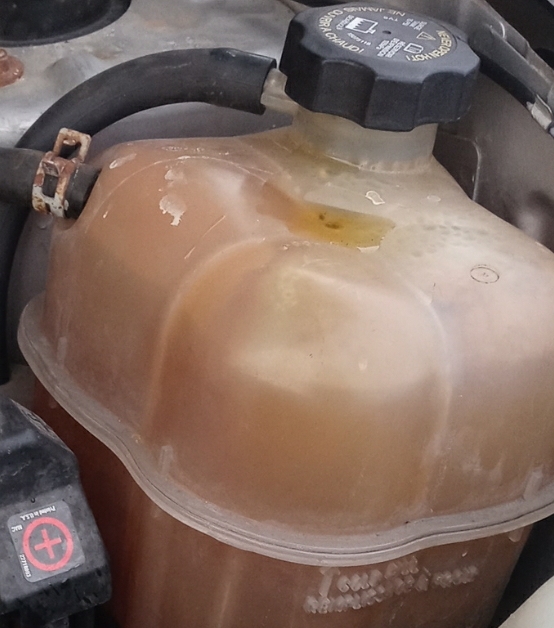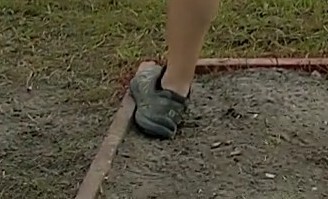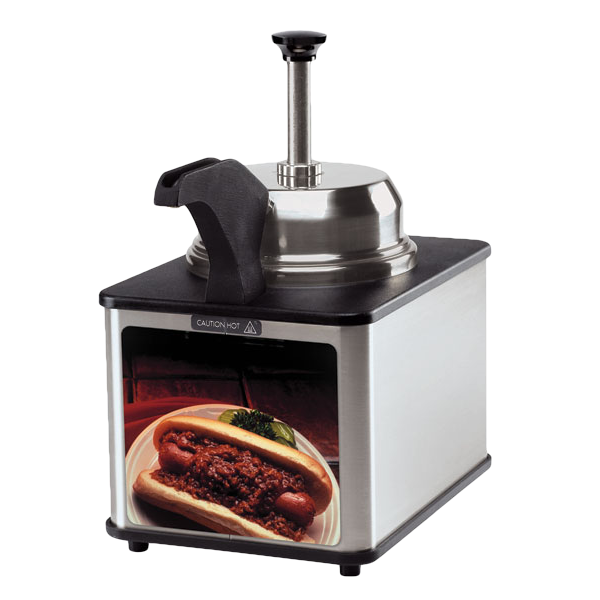A lot of bougies are building their doomsday bunkers in New Zealand, so based on that alone I’d guess NZ is safe. Then again, if the wealthy are good at anything it’s being very confidently wrong, so maybe not.
An island country like New Zealand seems like a pretty ass location to weather rising sea levels and climate change but what do I know.
My guess would be something like Saskatchewan or Manitoba might be pretty nice places to live with potable water. From what I hear real estate there is also booming, so I’m not the only one thinking that.
New Zealand is volcanic with a lot of elevation, so you’re not drowning anytime soon.
deleted by creator
I think the New Zealand thing has to do with nuclear war more than climate change, since they’re far from the theoretically worst affected areas from fallout
you know what? a nuclear winter probably would offset climate change
shit, i hope i didn’t tempt the lathe with that statement
deleted by creator
Well, at least initially, it would be
Go to New Zealand so you can raid their bunkers and get revenge.
Let’s go there and cement their hatches shut and cut off their communication. Have fun eating creamed corn with your weirdo family that you hate for 20 years!
Cement the air pipes
deleted by creator
move to my fief & become my serf, my knights will defend your life and limb for a modest amount of your harvest

High ground in Midwest near a lake?
To go the opposite of the prepper direction, you’ll want to move somewhere that has a high potential for communism to take root and get building, because what’s gonna save you is community.
But given the state of the left, at least in the us, maybe getting out will be better. Look up American resiliency on YouTube. In the us, she lists 3 regions. Probably best is the upper Midwest, Duluth is an especially popular location, and Minnesota is probably a good state to be in. Also the inland northeast, eg upstate New York. She also lists the eastern part of the Pacific Northwest (eastern Oregon, eastern Washington, Idaho). I don’t agree with her here however since, going back to community, this region, esp eastern Oregon and Idaho, not sure about eastern Washington, is a hotbed for American fascism. Also wildfire issues there - of course the Midwest and upstate ny got hit pretty hard this year with wildfire smoke so I’m not sure if you’re actually gonna be able to avoid that.
Outside the US, I’ve seen Ireland, Tasmania and esp. New Zealand floated as good places to go. Ireland or New Zealand would probably be my choices there.
deleted by creator
deleted by creator
You wanna be high up but not on a ridge line. Find a dirt road that goes halfway up the holler and set up there at the end of it. Your water is from a well high up in the water table and from a creek or spring fed by that water table and rainfall. Because no one’s above you, clean waters no problem. No more of a problem than it is for anyone who relies on rainfall.
You want to be in the woods. Wood is a raw material that can be used for everything from heating to construction and can be cut, handled and worked by one person with hand and power tools. Woodlands are home to massive amounts of biomass and as climate change drives more people into the working poor, the state sanctioned harvest of game animals will grow smaller and smaller. Even now we’re seeing a boom in whitetail and turkey populations. People living in woodlands will be well positioned to take advantage of that turkey population. Maybe not the deer so much as cwd advances inland and north. Woodlands in mountains have both elevation and plant biomass to blunt extreme weather as well.
You’ll need a car and the ability to do regular maintenance on it. Shoot for 15-20+ year old fleet vehicles. Don’t worry about trucks, they’re nice to have but a crown vic will pull a trailer just fine when you need to move big stuff. That doesn’t mean don’t have a truck or a bicycle, just recognize that you need a car and it needs to be reliable and repairable.
Don’t hoard food, but have a pantry with the maximum amount of staple foods that you can reasonably expect to eat before they go bad stocked up. Follow fifo and keep a ledger of what you have. Fluctuating food prices aren’t as much of an impact when you’re buying oatmeal for three months down the road as opposed to next week.
You need some kind of house to live in. An old single wide is fine but bear in mind parts for trailers are different than parts for stick built houses and they can me more difficult to find. Don’t rely on living in a van or camper, once it starts to fall apart you gotta be able to fix it yourself or buy another one. If you’re building, consider earth sheltering techniques.
You need power, but there’s no cheap ways to get in on making it yourself. Theres an old 70s book called how to make electricity from water wind and sunshine that has some good diy options. There will be some kind of sustainability weirdos near you. Hook in with em and ask questions but don’t give away what kind of person you are. It’s not their business why you wanna build a waterwheel on your creek or whatever. Consider smart breaker panels that will do switchover from mains once you have a backup supply.
Satellite internet seems like a good idea but it’s very susceptible to weather conditions. Pay for fiber if you can get it where you are. Have em drag a real land line out to you. Plain old telephone service works in a power outage.
An addendum:
This is not meant to be self sufficiency or prepper territory. You don’t wanna be so far away from people that you don’t have neighbors or avoid the community around you and you can’t survive on your own.
Make friends with the people around you. If you find you have too many bags of flour or something from the latest shopping trip, take a stroll down the driveway and offer it to your neighbors. Bake some kind of cake to give out on holidays. When you make a huge batch of blackberry jam, save some jars back for everyone around you. If you feel safe doing it, help people by the side of the road.
Go to church. Or mosque or temple or whatever. It’s where people meet up and talk and you can make connections and just be normal there. You’re not the first person to treat Sunday like a social club and you won’t be the last. If you need to avoid the holier of the rollers, Methodists are pretty bland.
Try not to be a weirdo.
If you’re doing your own oil changes (or doing changes for the block), a waste oil heater can keep your garage or shed warm for possibly free.
Places to look for this type of zone: older, hillier mountain ranges, the Catskills and appalachians.
A second addendum:
Recognize what you’re trying to get prepared for. Global climate change isn’t gonna make the whole earth do storm of the century or day after tomorrow, it’s gonna make things slowly get worse and harder.
How will those things effect you and how can you take action now to mitigate them?
You’re not trying to build a fortress to protect from mad max, you’re trying to put together a safe life for yourself and family and friends. You’re not trying to hunt and farm enough to restart human civilization, you’re supplementing your groceries with food from the garden.
This is all great advice! I’d like to add that having books is great too. You can’t always rely on the internet in certain situations. All of the off-grid knowledge you need can also be found in books. Plus, books are heavy, durable, and in a pinch make a good firestarter.
interior, away from rising sea levels - but then again you maybe closer to the forest fires if or when that happens… thats my plan anyways,
Propublica - The Great Climate Migration
According to new data from the Rhodium Group analyzed by ProPublica and The New York Times Magazine, warming temperatures and changing rainfall will drive agriculture and temperate climates northward, while sea level rise will consume coastlines and dangerous levels of humidity will swamp the Mississippi River valley.
Taken with other recent research showing that the most habitable climate in North America will shift northward and the incidence of large fires will increase across the country, this suggests that the climate crisis will profoundly interrupt the way we live and farm in the United States. See how the North American places where humans have lived for thousands of years will shift and what changes are in store for your county.
When I last looked, the maps showed parts of Vermont and Colorado faring best (or least worst), but given how Vermont was flooding pretty bad this summer I think a lot of our data we’ve got is corrupted by researchers being forced to prostrate themselves to capitalist forces in order to avoid being the victim of a chilling effect.
The more likely explanation here is that we can make reasonably accurate predictions at coarse scales about how temperature and precipitation will trend but the models can’t easily translate that into meteorological predictions. 100-year droughts/floods/storms will get more common everywhere as the total amount of energy in the atmosphere increases.
I thought Michigan was one of the better options. they say in 50 years Portland will have Sacramento’s weather, which is kinda ass (scorching summers), so go further north than the 45th parallel
Portland is gonna have irradiated water from the Hanford superfund site due to a climate change related storm one of these days.
Is Michigan bad?
Michigan is great, and getting better!
Come to Michigan! We have fresh water, less “storms of the century”, lots to forage, the animals won’t kill you (mostly) and most of our rednecks get the basic concept of mutual aid when you really get down to it
Oh, and legal weed 😎
We’re all dead lol it doesn’t matter. Global supply chains ending affect the whole world, localised self sufficiency isn’t possible beyond basic necessities
Great Lakes area. Probably Michigan, since it’s particularly hilly/elevated
I would suggest my area to you because we’re surprisingly weathering the effects pretty well compared to the rest of the country, but I like having it remain somewhat unknown. Our small population is part of the reason it’s done so well.
I love how your username cuts off the bit of info that would narrow it down
Focus on elevation of terrain and flood plains.
being in a large inland city in a condo is probably the safest. i think rural areas are gonna be the places most fucked by climate change, the elite wont let their properties in cities get exploded. so places like chicago.














